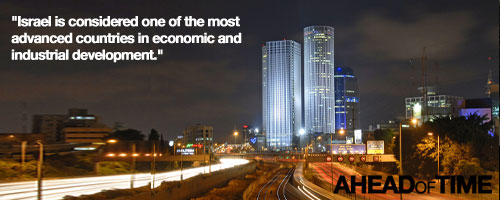Key Takeaways
- Israel operates on Israel Standard Time (IST), which is 2 hours ahead of Coordinated Universal Time (UTC+2).
- Daylight Saving Time (DST) is observed in Israel, typically starting in late March and ending in late October.
- Understanding the time zone differences is crucial for business, travel, and communication.
- Israel’s time zone is influenced by its geographical location and cultural practices.
The Basics of Time in Israel
Israel is a country that is rich in history, culture, and innovation. Understanding the time in Israel is essential for anyone planning to visit, do business, or communicate with someone in the country. Israel operates on Israel Standard Time (IST), which is 2 hours ahead of Coordinated Universal Time (UTC+2). This time zone is consistent with other Eastern European countries, making it relatively easy for travelers from nearby regions to adjust.

Daylight Saving Time in Israel
Daylight Saving Time (DST) is observed in Israel, which means that the clocks are set forward by one hour during the warmer months to make better use of daylight. Typically, DST in Israel begins on the Friday before the last Sunday in March and ends on the last Sunday in October. During this period, the time zone changes to Israel Daylight Time (IDT), which is UTC+3.
Historical Context of Time Changes
The adoption of DST in Israel has a unique historical context. Initially implemented in 1948, the practice has undergone several adjustments over the years due to political and social considerations. The current DST schedule was standardized in 2013, aligning more closely with European countries to facilitate international business and travel.

Why Time in Israel Matters

Understanding the time in Israel is not just about knowing when to set your watch. It has practical implications for various aspects of life and work:
Business and Communication
Israel is a hub for technology and innovation, with many businesses operating on a global scale. Knowing the time difference is crucial for scheduling meetings, making calls, and coordinating projects across different time zones. This is especially important for companies in the United States, Europe, and Asia that have partnerships or branches in Israel.
Travel and Tourism
For tourists, understanding the local time is essential for planning itineraries, booking accommodations, and participating in tours. Israel’s rich cultural heritage and diverse landscapes attract millions of visitors each year, making time management a key aspect of a successful trip.
Cultural and Religious Significance
Time in Israel is also deeply intertwined with cultural and religious practices. The Jewish Sabbath, known as Shabbat, begins at sunset on Friday and ends at nightfall on Saturday. This weekly observance influences business hours, public transportation, and social activities throughout the country.
Adjusting to Time in Israel
Whether you’re a traveler, business professional, or new resident, adjusting to the time in Israel can be seamless with a few practical tips:
Use Technology

Smartphones and computers automatically adjust to local time zones, making it easier to keep track of the time difference. Setting your devices to Israel’s time zone before your trip can help you acclimate more quickly.
Plan Ahead
Consider the time change when scheduling flights, meetings, or events. Arriving a day early can give you time to adjust to the new time zone and recover from any potential jet lag.
Embrace the Culture
Understanding the cultural significance of time in Israel can enhance your experience. Participating in local customs, such as observing Shabbat, can provide valuable insights into the country’s traditions and values.
Time in Israel is more than just a measure of hours and minutes. It reflects the country’s unique blend of history, culture, and modernity. By understanding the time zone, daylight saving practices, and cultural implications, you can enhance your interactions and experiences in this dynamic nation. Whether you’re planning a visit, conducting business, or simply staying informed, knowing the time in Israel is a crucial aspect of engaging with this vibrant country.